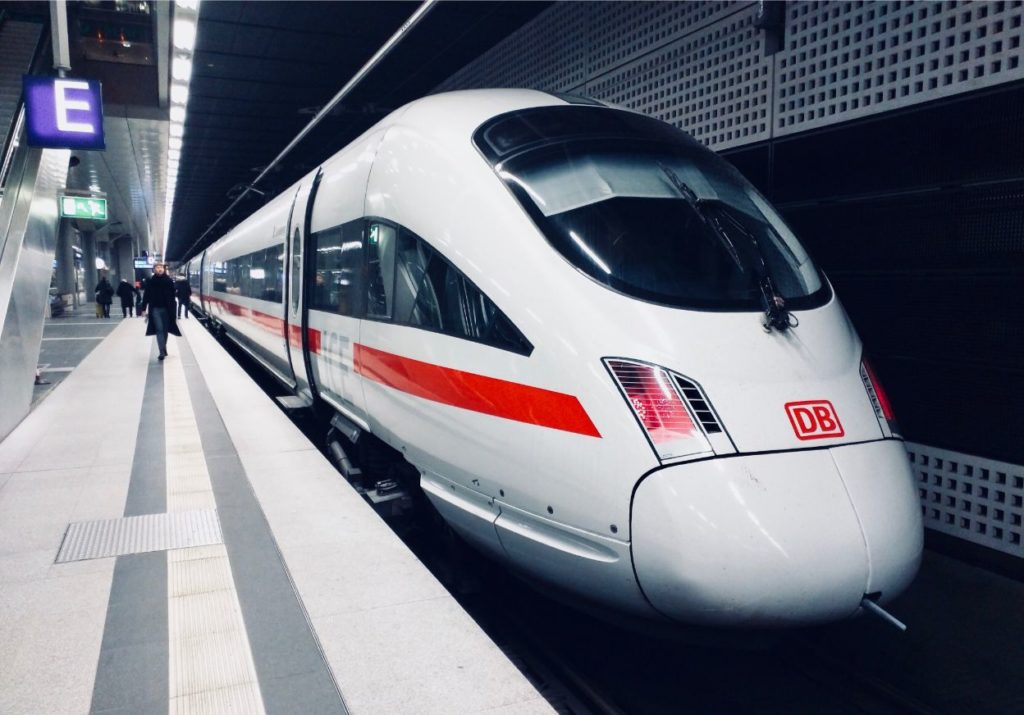Today is sustainability day! It is an important day for Green Week. Of course we think daily about sustainability, ecology, green energy and a sustainable lifestyle. Today I feel about talking about sustainable traveling.
Traveling is a popular thing to do. Traveling is about exploring, discovering, adventure, new cultures, meeting new people, etc. Traveling is a great experience. However, traveling is also greatly polluting. The most polluting activities of human kind might be energy production, industries, transportations and traveling. In order to strive for a sustainable lifestyle, one could say that traveling should be out of the question. I think this might be a bit too strict. We cannot expect humans to not travel at all in order to save the world. It’s not realistic. Therefor I would like to introduce sustainable traveling as a solution.
What is sustainable traveling?
Going from one place to the other generally always pollutes the environment. Unless you walk, bike or drive an electric car. Public transport is also an ok solution. Driving a normal car pollutes greatly. And we should stop traveling with airplanes. Think about all the destinations close by your home you could discover during travels and vacations. No need to travel the entire world to find extraordinary nature, warm beaches and unforgettable experiences.
There is a lot to discover. I gladly give you some tips on sustainable traveling, oriented towards sustainable traveling in Europe.
Select your mode of transportation wisely: compensate flying (or preferably don’t fly at all)

I assume we all do our best in our daily lives to pollute as less as possible. Are you a vegetarian? Great. But a short flight of an hour already compensates this environmental effort with a huge amount of CO2 emission. And why actually fly such short distances? By car it takes only a few hours, which is generally the same travel distances when you include going to the airport, checking in, boarding and leaving the airport at your destination.
Flying is a really polluting way of traveling. Better always go for another option.
Travel by public transport
The train is a great mode to explore neighboring countries in Europe. Especially high speed trains take you to another destination very comfortably. You’ll have more leg space than in a airplane, and less stress. In The Netherlands, for example, you’ll find a great train network. Dutch trains run entirely on wind energy. This is a CO2 neutral way of traveling. And in The Netherlands, in many cases the train is just as quick as taking the car.
Another great new alternative is the bus. Especially relative short distances of several hours can be done easily by bus. Bus networks are emerging like crazy in Europe. Check out for example Flixbus, which has bus connections in almost every European country.
A great advantage of using public transport instead of an airplane or car, is that you can actually enjoy the surroundings. Europe is quite beautiful, with lovely scenery’s that can be enjoyed from your bus or train seat.
Compensate your flight

There are occasion you just need to fly. For example to visit family or friends that live in places that are simply too far away. Or for work. Do remember that slow travel can be a great experience anyway. So a bus, train or a road trip by car might be a great experience when you need to travel large distances. As an alternative to flying.
So when you do need to fly, choose an option to compensate the CO2 emission that you cause with your flight. Most airlines have a certain program to compensate the CO2 emission. When booking you can choose to pay a bit extra. This money will be used in special sustainability projects. For example: planting trees. KLM has a CO2zero project to compensate CO2 emissions by passengers.
Another thing to keep in mind when booking a flight, is to book a direct flight. Or as direct as possible. During take-off and landing an airplane emits more CO2. Flixbus actually also has a CO2 compensation play, called Green bus.
You can also choose to travel light. More weight causes more CO2 emission by the airplane. So don’t bring things on the airplane you don’t really need anyway.
Travel locally, or nationally
Do you already know every corner of the country you live in? Probably not. You’ll be surprised how divers, beautiful, interesting and impressive your own country might actually be. Moreover: the less distance you travel, the less CO2 you emit. Perhaps you should consider some short distance vacations for a change.
There are probably so many great experiences and adventures in your own country. My tip: make a list of interesting destinations in your country that you hear about, or things that come up. Write them down so you don’t forget about them. When you’re going to plan your next vacation you can make a great trip combining the best things you want to visit, experience and do on a short distance from you home.
Rent for example a sustainable camper and tour around. Visit national parks you didn’t know existed. Explore the food culture of different areas nearby. Plenty of things to do.
Choose a sustainable travel organization for organised travels
Sustainability is more than CO2 emission. It’s the footprint you leave. This can be the ecological footprint, but also an economic footprint. Sustainable travel organizations strive to leave only a small footprint, and preferably none at all.
Try to support locals and local businesses during your travel, instead of large multinationals. Or try to search for great international eco-friendly travels. For example the Trans-Siberian Express from Russia to China.

Go with Locals
As a said before: support local initiatives during your travels, instead of multinational companies. Keep it small and local. There are many ways.
For example: Airbnb, local tour operators, small hotels, local guides, small local restaurants, Couchsurfing, etc. Between you and me: these alternatives give way better local, cultural and social experiences. Life can be an adventure!
So enjoy it, but keep it simple, local and as sustainable as possible. It’s possible, and doesn’t really need a big effort. You’ll only need a different mindset.



